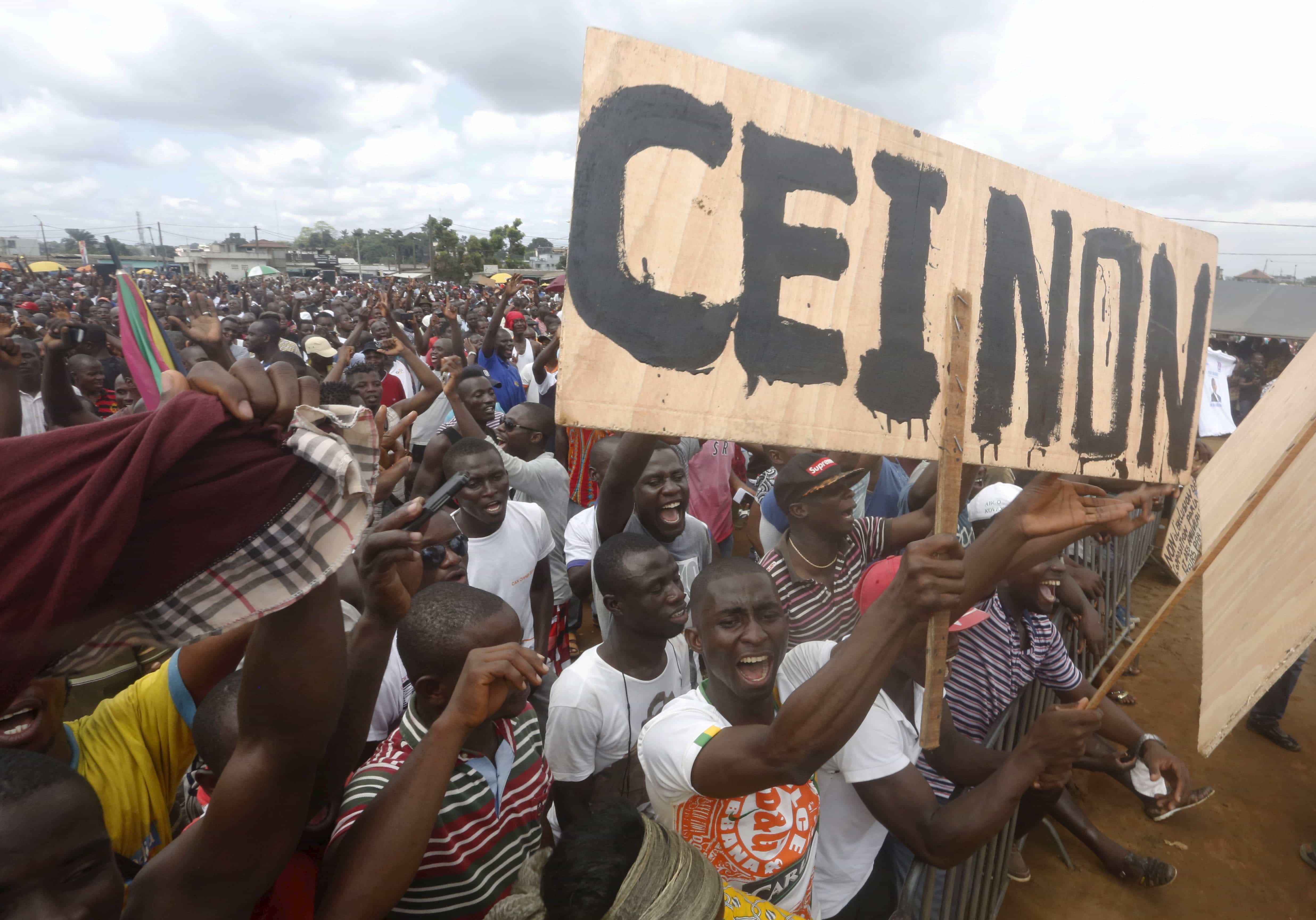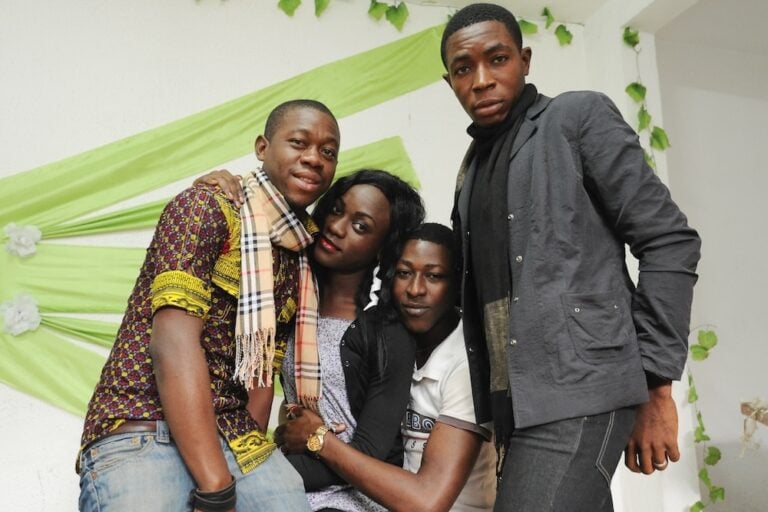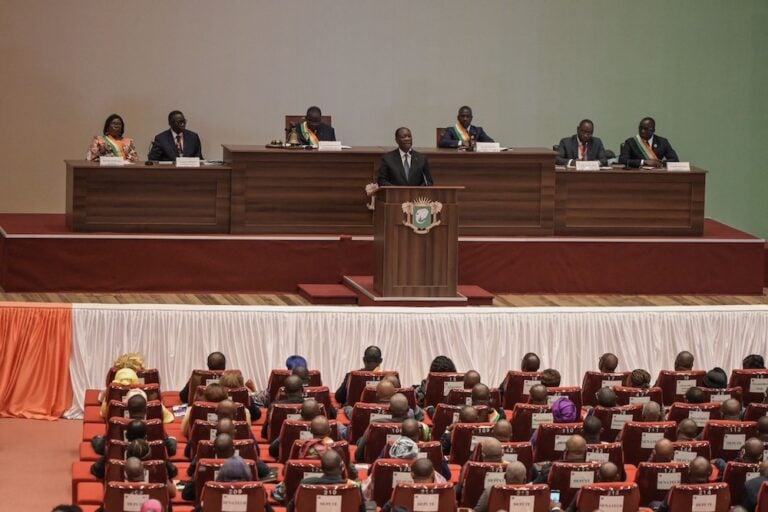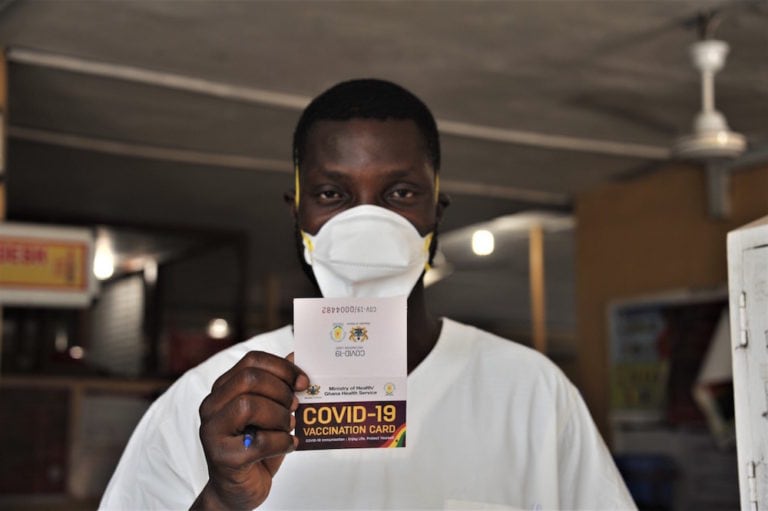All political actors in Cote d’Ivoire should make a commitment to peaceful elections, 15 Ivorian and international organizations said several days before the first round of presidential elections. The groups expressed their concern over the treatment of a number of opposition activists detained over their involvement in unauthorized protests.
This statement was originally published on hrw.org on 21 October 2015.
All political actors in Cote d’Ivoire should make a commitment to peaceful elections, 15 Ivorian and international organizations said today, several days before the first round of presidential elections. The groups expressed their concern over the treatment of a number of opposition activists detained over their involvement in unauthorized protests.
The elections on October 25, 2015, will be the first since the post-electoral crisis of 2010-2011, during which at least 3,000 people were killed and more than 150 women were raped.
While the atmosphere is relatively calm leading up to the first round, the election will nevertheless take place in a context of objections by some candidates over the way the government has organized the poll.
Two of the ten candidates, Essy Amara and Mamadou Koulibaly, have withdrawn, claiming that the conditions for guaranteeing transparent elections have not been met. Clashes in June and September between ruling party and opposition activists, particularly supporters of the former president, Laurent Gbagbo, left at least three people dead and dozens injured.
On October 7, four of the candidates signed a code of good conduct committing them to “adhere to the principles of non-violence” and to demonstrate restraint in their speech and behavior. No violence has been reported since the official start of the campaign on October 9.
“The presidential election is an important milestone for democracy in Côte d’Ivoire,” said Patrick Baudouin, honorary president of the International Federation on Human Rights (FIDH). “We are calling on all the candidates not to use violence and to favor legal and peaceful means to resolve disputes.”
In August, following the arrest of opposition members for their involvement in protests, several of the 15 organizations, including Human Rights Watch, called on the Ivorian government to guarantee respect for freedom of assembly in the period before the presidential election.
Beginning on September 9, following a call by certain opposition leaders for street protests over the validation of President Alassane Ouattara’s candidacy for the presidential elections, the security forces forcibly dispersed people trying to demonstrate in Abidjan and certain towns in the interior, where some acts of violence were reported.
The security forces arrested dozens of people, including opposition members, for their role in these protests, which the government deemed “unauthorized.” There were more arrests on September 26 following the banning of another protest in Abidjan. At least 51 people are still being detained, most of them opposition members and sympathizers, including 4 minors.
The government has justified banning certain opposition protests by citing the need to preserve law and order. Under international law, restrictions on freedom of assembly are only justified when they are absolutely necessary, such that the restriction is proportionate to the risk.
The 15 organizations, including Human Rights Watch, called on the government to seek alternatives to prohibiting demonstrations and arresting protesters, through measures to encourage dialogue and an appropriate mechanism to maintain law and order, to avoid violence. Several peaceful protests, notably on September 28 in Abidjan, provide a good example and show the way forward. These protests were facilitated by dialogue between the government and the opposition, particularly with regard to the route protesters would take.
At least three of the opposition members arrested were detained in secret for weeks in unauthorized detention facilities, with no possibility of obtaining legal assistance. This is a flagrant violation of the right to a fair trial, protected by international law and Côte d’Ivoire’s international human rights obligations.
Richard Kouamé Apkelé and Judas Douadé were arrested in Abidjan on September 9 in connection with a banned protest planned for September 10. They were detained at Abidjan-Plateau police headquarters, then in a secret location beginning on September 17, with no communication with the outside world.
Tried on October 14 by the Yopougon Court of First Instance, Apkelé and Douadé were sentenced to six months in prison for disturbing public order. They were deprived of their civic rights and prohibited from appearing outside their place of birth for five years. Their lawyers were not informed of their trial, and so were unable to represent them.
Douyou Nicaise, also known as David Samba, another opposition leader, has been detained in a secret facility since September 17 and was sentenced on October 2 to six months in prison for complicity in disturbing public order.
The need for public security cannot justify detention in secret facilities without the possibility of legal assistance, the groups said. Ivorian judges should immediately review the grounds for the arrest and detention of the detained opposition leaders and activists. The judges should order the release of all detainees unless the Ivorian authorities have shown the legal basis for, and necessity for, detention.
“Fear of violence, while understandable given Côte d’Ivoire’s recent history, can never justify depriving people of liberty in places where there is no oversight or legal assistance,” said Corinne Dufka, West Africa director at Human Rights Watch. “The Ivorian authorities need to ensure that the rights of all Ivorians, regardless of their political orientation, are respected at this sensitive time.”
Signatory organizations
Action by Christians for the Abolition of Torture – ACAT Côte d’Ivoire
Action for Democracy, Justice and Freedom in Côte d’Ivoire (ADJL-CI)
Actions for the Protection of Human Rights (APDH)
African Union Club
Association of Women Lawyers of Côte d’Ivoire (AFJCI)
Civil Society Coalition for Peace and Democratic Development in Côte d’Ivoire (COSOPCI)
Group of Ivorian Actors for Human Rights (RAIDH)
Human Rights Watch (HRW)
International Federation on Human Rights (FIDH)
Ivorian Civil Society Convention (CSCI)
Ivorian Human Rights League (LIDHO)
Ivorian Human Rights Movement (MIDH)
Ivorian Human Rights Observatory (OIDH)
Organization of Active Women of Côte d’Ivoire (OFACI)
Women’s Centre for Democracy and Human Rights (CEFCI)



